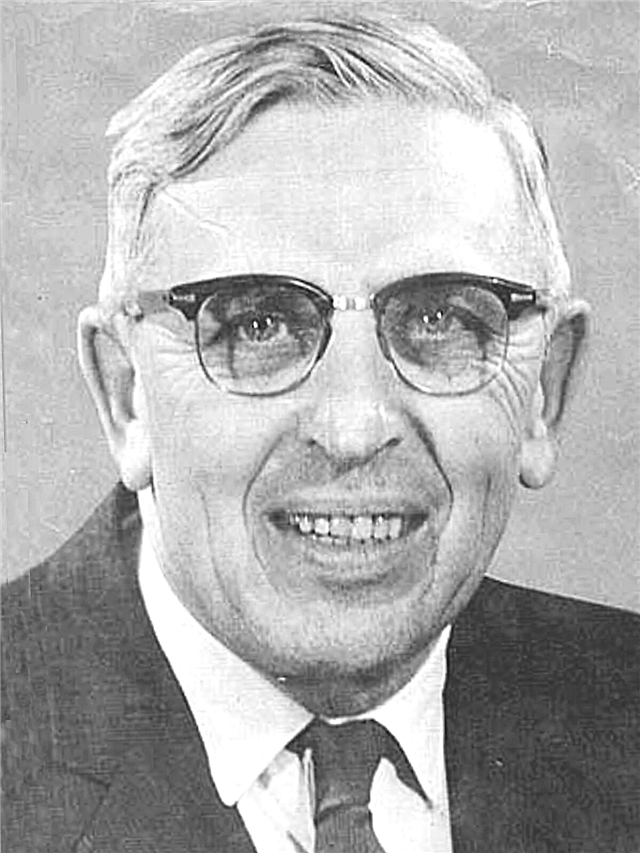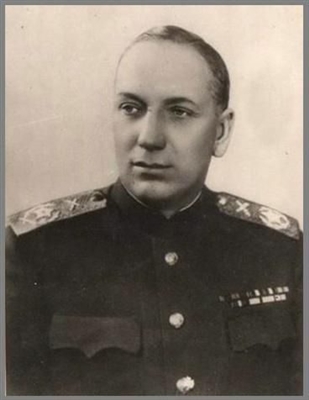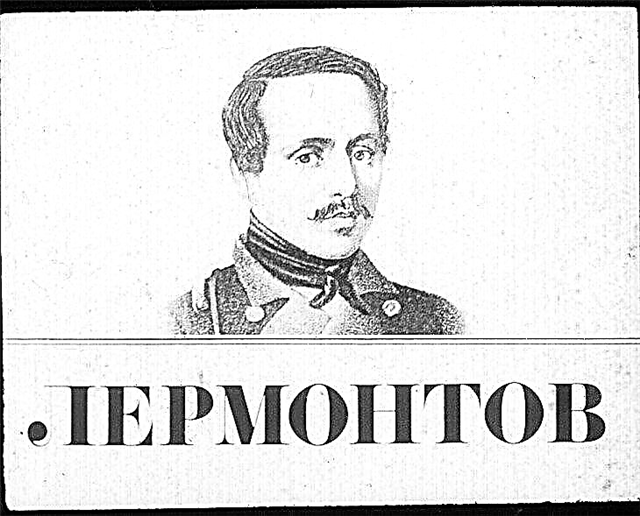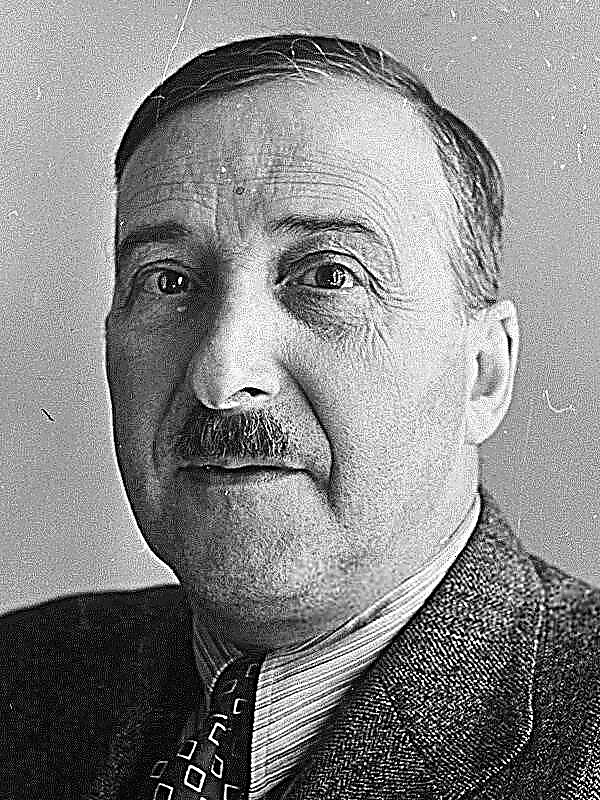Efficiency Can Be Learned
Any leader is required to perform tasks correctly - efficiency. People with brilliant mental abilities can be ineffective workers. Mind, imagination and knowledge only in combination with efficiency are embodied in the results.
Until recently, the main problem of the organization was the productivity of manual workers. Over the past hundred years, we have learned to measure it and have repeatedly increased the productivity of an individual worker. The work of modern organizations is based on intellectual labor.
- It cannot be measured using criteria derived for physical labor;
- Not quantifiable;
- Not measured by costs incurred;
- The contribution of managers does not depend on the number of subordinates;
- Efficiency is the results, not the amount of managerial work.
In the books on the development of managerial personnel, they present a portrait of “the leader of tomorrow” as “a person for all time,” in such people the world has always experienced a great lack. Generic Genius Required:
- Able to conduct analysis;
- Make decisions;
- Work with people;
- Think creatively;
- Good knowledge of mathematics;
- Understand the characteristics of your company and management structure.
Companies are recruiting people who, at best, have one of the desired qualities. Form an organization so that any person who is strong in a particular area can use their skills and abilities in their work. Bet on expanding the horizons of people’s activities with the tools available to them. Do not count on a sharp leap in the development of personal abilities.
A distinctive feature of effective leaders is the ability to achieve a positive result in everything. Five habits that a leader needs to develop in order to work effectively:
- Know what your time is being spent on. Work on managing time, increasing its effectiveness.
- Focus on achievements that go beyond the organization. Aim not at the job, but at the end result.
- Develop strengths - your own, your superiors, colleagues, subordinates. Do not focus on weaknesses, do not start with tasks that you cannot solve.
- Focus on areas where high-quality work will produce outstanding results. Prioritize and stay on top of them.
- Make effective decisions. The right decisions are a system, a series of right steps in the right sequence. An effective solution is based on a divergence of opinions, not on consensus. Quick solutions are erroneous decisions. There should be few solutions, but they should be fundamental. The right strategy is needed, not inventive tricks.
Spend your time
The resource of time is irreplaceable! Learn to manage your time - first, as accurately as possible, determine what it is actually spent on and minimize its unproductive use. Consolidate the time you can control into enlarged blocks, do not do 20 blocks, do 5.
The time management process consists of three stages.
Time recording
Consider the amount of time spent on work, analyze your effectiveness.
The first step to improving the manager’s performance is to accurately record the actual time spent. Record your time spending regularly.Identify the most unproductive activities and get rid of them. After each check, create a new work schedule. Ask yourself diagnostic questions:
- What will happen if this is not done at all? If the answer is “nothing,” discard this case.
- What types of activities for which I am responsible can another person take up and do the job no worse, or even better, than me?
- What are my activities that waste time without bringing benefits to my work?
Time management
Make a plan for useful and necessary things. Poor management spends most of your time.
- Identify unproductive time wastage due to lack of system or shortsightedness. Work crises recurring year after year are a good signal for action. The crisis that happened a second time should no longer arise.
- Make sure that there is not too much labor - this reduces efficiency. In such cases, workers spend more time on “interaction” than on work. If leaders spend more than a tenth of their time solving “problems of human relationships,” the collective is too large.
- Too many meetings is an indication of poor organization. The task should be holistic, do not break it down into several sub-tasks, when responsibility is shared among many people and information does not reach those who really need it. Meetings should not be the rule, but an exception to the rule.
Time consolidation
Group cases into large time blocks. Working time will be spent to no avail if it is fragmented into blocks of 15-30 minutes. There are many ways to consolidate time blocks. You can work at home one day a week; plan meetings, checks, discussions of various problems for two days of the week; Schedule daily workload every morning before going to work.
Discretionary time is spent on doing things that bring the highest return. Estimate how much is at your disposal. Allocate solid blocks of time for specific events. Constantly review your schedule and get rid of the least productive activities.
Do not leave the plan on paper - work with it constantly.
Managers often have to deal with ineffective, but necessary tasks: talking with the best customers, participating in subordinate meetings, providing information ... Try to assign such matters to responsible subordinates. To achieve real results, a mental worker should focus on the achievements and goals of the work of the whole organization.
How can I contribute to the success of my organization?
Remember your responsibility to the company. A person who focuses all his attention on ongoing efforts and constantly emphasizes his authority and power is just a subordinate, no matter how high his status in the organization is.
Personal responsibilities of the head
Every organization needs to succeed in three main areas:
- Immediate results;
- Development of values and their confirmation;
- Training employees for future work. If the organization fails in one of these areas, then first it will be in a state of stagnation, and then cease to exist. It is in these areas that the leader should contribute.
Inability or unwillingness to change in accordance with the requirements of a new position is a common cause of manager failure. It’s not only the results that his activities are aimed at changing, the general importance of the three main parameters of successful work is changing.
How to increase the effectiveness of a specialist
It is necessary to give the specialist the opportunity to work effectively in his niche.He must clearly understand who will use the results of his work and what the user needs to know and understand in order to do his work productively. It is necessary to take care of the practical applicability of your product. The main thing is not to produce universals, "jack of all trades."
Correct Interpersonal Relationships
Correct interpersonal relationships arise when, in work and relationships with others, the leader focuses on his contribution to the common cause. Requirements for effective interpersonal relationships:
- Communication;
- Teamwork;
- Self-development;
- The development of other people.
Efficient meeting
The main rule is to initially orient the meeting to a specific result.
An effective leader should clearly know what he wants to achieve through a meeting, report or presentation. The content of such events should be carefully thought out and communicated to the participants in advance.
How to Strengthen Strengths
To achieve results, use all possible strengths of subordinates, partners, superiors and your own. Make strengths as productive as possible.
Selection of employees based on their strengths
Staff recruitment rules:
1. A position in which two or three people have already changed, having done their job well at their previous jobs, should be considered impossible. Change it.
2. Make each post large-scale and significant. The work task should be so broad that all the strong qualities of the employee are manifested in full force - this will reveal its strengths in the candidate.
3. Start working with people, revealing and correctly using their potential, rather than entrusting them with standard responsibilities. Do not try to evaluate the employee’s potential, potential is just a promise. Successful managers develop their own assessment forms, which consist of listing the achievements of employees in their previous positions and four questions:
- What is he doing well?
- What else can he do well based on his abilities?
- What does he need to learn how to make full use of his strengths?
- If I had children, would I like them to work with this person in the future? Why?
4. To use strengths, you need to be able to put up with weaknesses.
5. Avoid the dangerous trap of creating posts for a specific person.
How to manage your boss
The emphasis on the strengths of his leader, that is, the creation of conditions for him to act on which he is capable, makes the work of both himself and his subordinate effective.
If the boss’s strength is his ability in politics at a post where politics is crucial, first familiarize him with the political aspect of the situation. He will understand what is at stake, and will effectively use his strengths taking into account the new direction of politics.
Improving Your Own Efficiency
Do what you can do best, constantly look for what else you can do.
An effective leader always observes his own work, its results and tries to track general trends: how to work more effectively with the audience or what time of the day it is better to write presentations, make quick notes or carefully work through each proposal.
To be effective, it is necessary to expand opportunities and limit problems. Standards for the activities of a group of people are set on the example of a leader - your activity should be based only on your strengths.
Everything has its time
The main secret of effectiveness is concentration. First of all, it is necessary to carry out the most important things and never do several important things at the same time. Tough self-discipline, iron willpower and the ability to say no are needed.This will help you with a huge number of tasks.
To do one thing in one period of time is to do it quickly. People who are able to remake a lot of things, different in nature, deal with them in turn.
Get rid of yesterday's cargo
Systematically getting rid of the old is the only way to effectively start a new one. Get rid of past failures; yesterday’s successes, which ceased to be productive; activities that did not bring the desired results.
The problem with well-known organizations is not the lack of creativity. Often, all of their employees are too busy solving yesterday's tasks. Stimulation of creativity is successful even in the most limited structures saturated with bureaucracy, if they regularly check programs and activities for their relevance and any unproductive activity ceases immediately.
Priority and other issues
Prioritization is a simple task. It is more difficult to identify non-priority tasks that should be postponed and strictly adhere to their solution. Courage, not analysis, dictates the really important rules for prioritization:
- Choose the future, not the past;
- Focus on opportunities, not the problem;
- Choose your own direction, and do not go with the flow, following the winners;
- Set goals that will give a visible result, and not those that are achieved safely and simply.
Impose your own first priority tasks, despite the limitations of time and circumstances. This is the only hope of the leader to become the master of his time and circumstances, and not their slave.
Decision making process
Effective leaders think in strategic and large-scale categories. Do not set a goal to solve current problems, do not make too many decisions. Concentrate only on the most important. Do not strive for quick decision making.
You need to know when the decision should be based on the principle, and when - based on the needs of the moment and pragmatism. Most of the time in this process is not spent on making decisions, but on putting them into practice. The implementation of an effective solution should be simple and as close as possible to the capabilities of the average employee.
The process of making effective decisions:
- Ask yourself: “Is this situation characteristic, or is this an exception to the rule?” Solve a common characteristic problem by establishing a principle. Exceptions must be dealt with, given the specific situation.
- Clearly define exactly what should be achieved thanks to a specific solution. What are its goals? What are the minimum tasks before him? What conditions should it satisfy? An effective solution must be consistent with the goals, otherwise it is ineffective and inappropriate.
- Start with what's right, not what's acceptable. At the final stage, you still have to compromise. If a person does not know how to meet the boundary conditions, he cannot make a choice between right and wrong compromise, and this often leads to errors.
- Implementing the solution takes the most time. No solution will be effective unless mechanisms for its implementation are developed from the very beginning. No decision can be considered adopted until someone is held accountable for its implementation. Putting a decision into action requires answers to several questions: “Who should know about this decision?”, “What actions should be taken?”, “Who will have to take them?”, “What should be the action so that the people entrusted to it were able to fulfill it? ". Actions must be consistent with the abilities of the people who will be entrusted with their implementation.
- Provide a feedback system to constantly verify the implementation of the solution and reconciliation with the implementation plan. Effective feedback requires organized information, numbers and data. The leader must personally verify how his decisions are being implemented, otherwise his activities will be ineffective.
Effective Solutions
Any decision is a choice between options. To make an effective decision, collect the maximum number of opinions supported by facts. Develop the habit, both in yourself and in your colleagues, of determining what you should pay attention to, what you need to study and what to check. This is the foundation of any effective solution.
An effective solution is not the result of consensus in assessing the facts, it is the result of conflicts of different opinions, as well as a serious analysis of a variety of options.
The development of an appropriate assessment mechanism involves a certain risk. To make a judgment, one must have choices. Only with the availability of options can one hope for a reasonable choice.
The first rule of decision making is to not make decisions until you hear opinions that are contrary to yours. Why, when deciding, you should insist on counterarguments:
- This is the only way to prevent a situation where the decision maker becomes a prisoner of the organization. A way to break out of the captivity of prejudice is to provide documented and carefully thought-out objections.
- Only disagreements provide alternatives to the proposed option. A solution without an alternative is just the move of a desperate gambler, no matter how carefully he is thought out. Look at the opposition as a means to think about solutions.
Each decision is an intervention in a debugged system. A good leader will not take risks and make unnecessary decisions. The decision should be made if the situation is likely to get worse without it. Opportunities often lead to improvement than to radical change.
Are you ready to make a decision if: the requirements are thought out, the options are studied, the risks and benefits are balanced, but this is not enough. In this situation, a successful leader must resist the temptation and conduct a study of this issue again.












